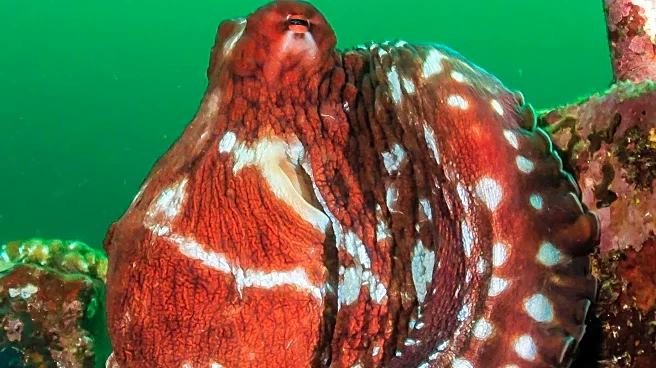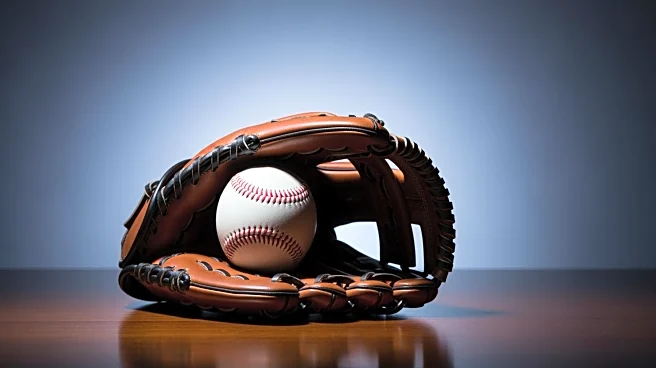What's Happening?
Ghost, a giant Pacific octopus at the Aquarium of the Pacific in Long Beach, is entering the final stage of her life cycle known as senescence. During this period, she will care for unfertilized eggs, a natural part of her life cycle despite the absence of a mate. The aquarium announced Ghost's senescence, prompting an emotional response from the public. Ghost has been a resident of the aquarium for over a year, and her caretakers have formed a bond with her. The aquarium has decided not to pair octopuses due to their aggressive nature, which can be lethal.
Why It's Important?
Ghost's senescence highlights the natural life cycle of giant Pacific octopuses, which can live up to five years. The aquarium's decision not to pair octopuses reflects a commitment to animal welfare, prioritizing their safety over reproduction. This event underscores the emotional connection between humans and marine life, as well as the importance of ethical practices in animal care. The public's response to Ghost's situation demonstrates the impact of conservation efforts and the role of aquariums in educating and engaging communities.
What's Next?
Ghost will be moved behind the scenes at the aquarium for the remainder of her life, where she will continue to receive care. The aquarium will monitor her health and provide updates to the public. This situation may lead to discussions on the ethical considerations of keeping octopuses in captivity and the best practices for their care. The aquarium may also explore ways to enhance public engagement and education about marine life and conservation.
Beyond the Headlines
Ghost's story raises questions about the ethical treatment of animals in captivity and the balance between conservation and animal welfare. It highlights the emotional bonds that can form between humans and animals, influencing public perception and support for conservation efforts. The aquarium's approach to Ghost's care reflects broader trends in animal welfare and the importance of transparency in conservation practices.









